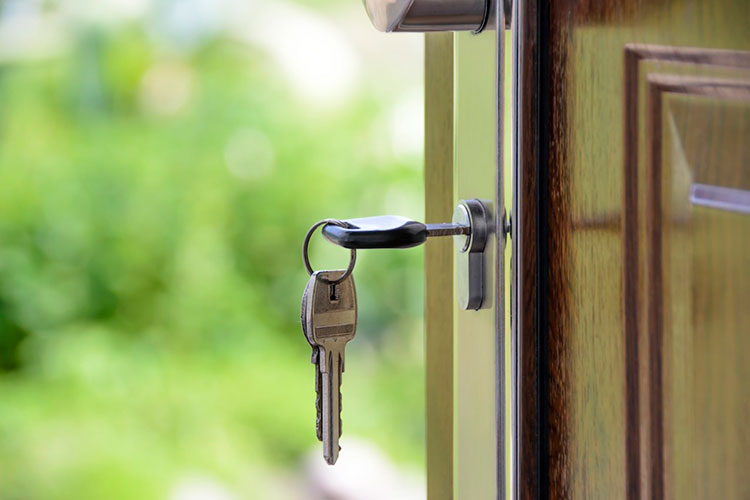


The definition of housebound is unable to leave one’s house typically due to illness or old age. Parents of individuals with autism, especially severe autism, often find themselves staying home but not because they are ill or aged. The fear of a public meltdown can make a family want to stay home. Some children and teens on the spectrum don’t have a sense of danger, and that can cause parents to remain in the confines of home. Social phobias and inappropriate behavior are more reasons why mom or dad won’t take their child out. Being housebound when you don’t want to be isn’t fun.

Autism can be both literal and figurative confinement. In some situations and with some (perhaps a lot of) children, it becomes “easier” to remain home rather than venture out in public where unpredictability or inappropriate behavior reigns. Parents of individuals with autism often find it extremely difficult, stressful, and exhausting to go places.
We’re not talking about a Mediterranean cruise or a coast-to-coast road trip in an RV. We’re talking about going to the store. The park. The cute corner café. Yes, going out in our own neighborhoods just to run errands or enjoy the simple things in life can be quite difficult. Parents of individuals with autism know this well. And because of this, parents decide that staying home is necessary.
Staying home with your child with autism (i.e. elective confinement) can be a mixed bag. While being housebound helps to avoid potential inappropriate behavior, public meltdowns, mean comments, and stone-faced stares, it also perpetuates the core deficits related to autism (impaired social interaction, limited communication, restricted interests). Staying home all the time instead of going out for fear of what may happen can provide temporary stress relief but can lead to some unwanted repercussions.
The more individuals with autism remain shut-in, the less likely s/he is to learn coping skills for anxiety-provoking situations and inappropriate behavior. The world can be a confusing and frightening place at times for all of us. It’s through exposures and experiences we have as young people that we learn to navigate life.
Kids with autism grow up to be adults with autism who have the same rights as the rest of society to enjoy life. Not only is it good for the child on the spectrum to be exposed to a variety of social situations, but it is also good for society to be exposed to individuals with differences.

Society’s response to differently-abled people has been and always will be mixed. Some willingly and easily accept; some just as easily criticize and judge. It can go either way. There is just as much of a chance for a positive interaction! Therefore, a housebound family should not let the chance of criticism keep them from going out. Removing our own discomfort over what people might say is the first step in breaking free from our home.
Once that barrier is banished, parents who are feeling caged can incorporate some techniques to ease their child or teen with ASD out of the house. It’s likely that these methods are familiar and/or have been tried. If so, and they’ve not worked, try again. If not, give them a shot. You’ve got nothing to lose except the feeling of four walls closing in. Don’t fall victim to staying home all the time.
Instead of going out to dinner at prime time, go at 4:00 or 8:00; whatever works for your family. And prior to going, maybe visit the restaurant. Scout out a table or booth that would work and alert the manager ahead of time that you’ll be in on such-and-such a date at a specific time. And choose a family-friendly place instead of an intimate or dressy establishment. Going off-times to stores can work well too. If there is such a thing anymore!
Buy or make wallet-sized cards to hand out in a pinch that gives a person a quick idea of what might be happening. No details, just bullet point info that serves to make them aware of, say, what a sensory meltdown is. The card can “thank them for their understanding.”
If a 1:1 pairing feels insecure, recruit other willing adults to venture out. Perhaps go for a short amount of time to a non-threatening, fairly calm environment. Set expectations for the outing ahead of time so everyone has a role. It might not go according to plan but outlining the visit first can reduce chaos.

If your child tends to have a favorite item or something that provides comfort, and you’re okay with taking it out of the house, then by all means bring it along. You could also make an outing that involves your child in finding something they enjoy (a new coloring book) so s/he has something to go towards and focus on.
You don’t need to pack a suitcase, but taking a backpack or small bag along might help. Think about a snack, a drink, a toy, a book, a fidget, and perhaps a calming fragrance. A cotton ball scented with something from home can work wonders, as could a small spray bottle filled with water and a nice essential oil. Fragrance can calm the mind and redirect the senses.
Parents with ASD children who are reluctant to leave the residence might not be able to plan an entire day outside the home, but maybe 15 – 30 minute increments could work. Set a portable timer on the way out the door and let the child know that when the timer rings, it is time to go home.
Many individuals with autism do well with some kind of visual assistance. Having pictures (either printed or on a device) of where you are going, what you will encounter there, who you might see, etc., can reduce anxiety about being in public. Many parents like Boardmaker for the variety of photos they can find.

It’s possible that none of these strategies will work right now. One could try each one and have just as much trouble going out. It’s all too easy to feel defeated and disappointed. Then the tendency to be housebound is even stronger! But think of it this way: each perceived flop is just a chance to examine what didn’t work and create a solution for next time! Keep your child’s limits in mind, manage inappropriate behavior, and work with them.
Every family is entitled to go out and shop, dine, enjoy a park, see a movie, ice skate, visit a museum, walk around a beach, and so much more. Plan ahead, take what you need, and leave people’s assumptions and judgments behind. Work with unpredictability instead of hiding from it. Being housebound and resenting shouldn’t have to be a way of life for those individuals with autism and their families.
More resources can be found in our Special Needs category.
Just enter your email address below and you’ll get an email every time we publish a new post!
Categories :
Tags :
Keri is a special needs parent and a veteran high school English and journalism teacher turned writer. She enjoys reading, hiking, gardening, cooking, traveling, wine tasting, and practicing yoga. Both she and her son love to create art. She has a passion for educating people on all things autism. Visit her blog at https://kerimehome.com.
View All PostsNotifications